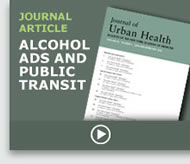Eating Well
What are whole plant foods?
Why is eating mostly whole plant foods optimum?
Can I get all the nutrients I need from a diet based on whole plant foods?
Why is growing these foods organically and locally so important?
What’s wrong with processed foods?
Does eating whole plant foods mean living a life of deprivation and sacrifice?
Isn’t following a whole plant foods diet really hard and time-consuming?
Is eating mostly whole plant foods expensive?
Why do processed foods taste better than whole foods?
What are whole plant foods?
Whole plant foods are vegetables, fruits, grains, and legumes in their natural state, unprocessed and devoid of chemical additives. These foods contain the optimum amount of nutrients that our bodies need. A diet based on whole plant foods minimizes or eliminates all animal products, including meat, poultry, fish, dairy, eggs, and their byproducts.
Why is eating mostly whole plant foods optimum?
In modern Western societies, diets rich in high-fat, high-cholesterol animal products have been associated with many chronic illnesses and health problems, including heart disease, hypertension, obesity, and certain types of cancer. Numerous epidemiological and clinical studies have shown that a diet based on fruits, vegetables, whole grains, and legumes significantly lowers these health risks. Because such foods are free of cholesterol and saturated fat (mostly), but rich in health-promoting phytonutrients, a growing number of nutritionists, medical researchers, and health educators are urging people to incorporate more whole plant foods into their diets.
Can I get all the nutrients I need from a diet based on whole plant foods?
Yes. Countless scientific and medical studies have demonstrated that human nutritional needs are amply met by a whole plant foods diet (with the exception of Vitamin B12, now that we so effectively sanitize our foods). All essential human nutrients, including protein, vitamins, minerals, and amino acids, are readily available to us in such foods. And contrary to popular myth, no schooling in complex “food combining” techniques is necessary. People can simply and easily satisfy all of their nutritional requirements by eating a wide variety of whole, minimally processed plant foods, and taking a weekly Vitamin B12 supplement. On the whole, studies show that vegans do a much better job of meeting their varied nutritional needs than omnivores.
Why is growing these foods organically and locally so important?
Plant foods that are grown organically – that is, without the use of agricultural chemicals or genetic engineering – offer many benefits over conventionally grown produce. Organic farming practices spare our environment from the many disastrous effects of chemical pollution, such as soil depletion and the accumulation of toxic compounds in our air, waterways, and food chain. Organic agriculture also shields farm workers and consumers from harmful chemical exposures. Because organic plant foods are cultivated in a diverse, biologically active environment featuring nutrient-rich soil, their nutritional profile is typically superior to that of conventionally grown produce, whose nutrient content is often seriously degraded by chemical inputs and monocultural farming methods. There are also many significant environmental benefits to growing and consuming only those plants that are native to the local environment, including the conservation of fossil fuels and other natural resources that would otherwise be squandered on transporting these foods over great distances. Also, buying from small, near-by farms supports the local economy and fosters a sense of community.
What’s wrong with processed foods?
Processed foods typically bear little resemblance to foods in their whole, natural form. They are manufactured, “value-added” products that are often stripped of vital nutrients and laden with excessive amounts of salt, sugar, fat, and synthetic chemicals. Evolution did not design humans to consume such large quantities of these substances, as is made evident by their being associated with many health problems, including hypertension (salt); heart disease and obesity (saturated fat); dental caries and elevated triglyceride levels (sugar); and cancer (chemical additives). Processed foods also require large inputs of fossil fuels and other natural resources for production and distribution. What’s more, our modern convenience-oriented processed food culture has made preparing healthy meals “from scratch” a lost skill for too many people.
Does eating whole plant foods mean living a life of deprivation and sacrifice?
The idea that whole plant foods diets are bland and flavorless is a very popular myth that we can easily dispel. Once people begin to discover and explore the wide variety of delicious and nutritious plant foods available at their local grocery or farmers’ market, a whole new world of tastes, flavors, and culinary aromas opens up to them. Their palates are excited by many wonderful, subtle tastes that were unavailable on a diet centered on processed foods and animal products. Given the opportunity to experience them, most people will prefer the nuances and bountiful flavors of whole plant foods, such as the delicately sweet taste of basmati brown rice and the slightly nutty flavor of kabocha squash. Eating whole plant foods is truly a delight for all the senses!
Isn’t following a whole plant foods diet really hard and time-consuming?
While preparing tasty and nutritious meals based on whole plant foods takes a little more time than simply grabbing a packaged breakfast bar in the morning and “nuking” a frozen dinner entrée at night, no professional culinary training is required; just a few basic skills and commitment. Given the many health and taste advantages, most people find putting a little extra effort into selecting and preparing whole plant foods extremely worthwhile. In fact, many people view the time they spend gathering and preparing these foods as an opportunity to “reconnect” with food as it was intended to be eaten — unadulterated by modern industrial processes. It’s also a wonderful way to bring the family together.
Is eating whole plant foods expensive?
Not necessarily. Eating whole plant foods is actually a highly cost-effective way to meet your nutritional needs, especially if you make an effort to minimize your consumption of costly “value-added” processed foods. Consumers can eat economically, healthfully, and deliciously by sticking mainly to the produce department and bulk bins of their local markets and skipping over the unhealthy and overpriced items in the packaged food aisles. Also, purchasing produce directly from farmers can save you some money.
Why do processed foods taste better than whole foods?
The processed food industry exploits human’s natural desire for three main flavors: salt, sugar, and fat. Humans evolved in an environment where food was scarce, so our bodies are designed to store nutrients to be ready for times of famine. That’s why we are drawn to foods that are high in calories and contain flavors that are pleasing. However, now that we live in an environment where food is everywhere, our bodies are not able to adapt. The research on whether certain foods are actually addictive is currently evolving. There is already evidence to suggest that certain food components such as sugar and fat may be addictive. However, all hope is not lost as our taste buds can adjust to eating whole foods lightly seasoned so that you can enjoy the true taste of the food itself without all the chemical flavorings and artificial additives.















